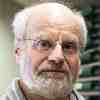Sign In
Communications of the ACM
Refine your search:
From BLOG@CACM
The Colossus
Unseen images of the code-breaking computer that helped win World War 2.
From BLOG@CACM
What Does Digitization Mean, and When Did It Begin?
Digitization is on everyone's lips. What does digitization mean and when did it begin?
From BLOG@CACM
400 Years of Mechanical Calculating Machines
Germany is celebrating the 400th birthday of Schickard's "calculating clock."
From BLOG@CACM
Did Grace Hopper Create the First Compiler?
Heinz Rutishauser (ETH Zurich, Switzerland) is regarded as the developer of automatic programming.
From BLOG@CACM
Early Computers in Continental Europe
About the Bark (binär automatisk relä-kalkylator, binary automatic relay computer) and Besk (binär elektronisk sekvens kalkylator, binary electronic sequential...
From BLOG@CACM
In Pursuit of an International Computation Center in Europe
The story of the UNESCO International Computation Center.
From BLOG@CACM
Where is the Cradle of the Computer?
The digital computer of today arose in the first half of the 1940s independently in three different countries: Germany, the U.K. and the U.S.
From BLOG@CACM
Turing's Influence on Computer Construction is Overestimated
How great was Turing's influence on early British automatic computers? Opinions differ considerably.
From BLOG@CACM
The Mesm: Ukraine Beats Russia
The Mesm is considered the first stored program digital computer in Continental Europe.
From BLOG@CACM
How Does One Divide with Napier's Rods?
Napier's multiplication and division rods, deriving from the basic multiplication table, simplify calculations considerably.
From BLOG@CACM
How Does One Multiply with Napier's Rods?
Napier's multiplication and division rods, deriving from the basic multiplication table, simplify calculations considerably.
From BLOG@CACM
The Evolution of Computing Power in Switzerland
Milestones in the history of computing from the Swiss National Supercomputing Center, Lugano.
From BLOG@CACM
The World's Most Magnificent Historical Calculating Machines
The design of today's electronic computers is usually not very appealing, in contrast to magnificent mechanical calculating machines from earlier times.
From BLOG@CACM
The World's Most Magnificent Historical Automatons
Automatons are ubiquitous. Some of the most magnificent works in the genre have survived in museums.
From BLOG@CACM
How Do You Calculate on the Abacus?
Considering the use of one of the most long-lived calculating devices.
From BLOG@CACM
Discovery: User Manual of the Oldest Surviving Computer in the World
A rare find: the user manual of the oldest surviving computer in the world, the Zuse Z4 relay machine (1945).
From BLOG@CACM
The World's Largest Commercial Cylindrical Slide Rule has a Scale Length of 24m
The world's largest mass-produced cylindrical slide rules come from Loga-Calculator AG in Zurich/Uster, Switzerland.
From BLOG@CACM
Would There Be Computers Without Easter?
Finding roots of computing in the computation of Easter.
From BLOG@CACM
Why Is There No Well-Known Swiss IT Industry?
Herbert Bruderer asks why no information technology industry emerged in Switzerland in the 1950s, despite the appearance of computers from several sources.
From BLOG@CACM
Calculating With Roman Numerals is Not So Difficult
How to deal with Roman numerals and without a sign for zero in an additive number system, if no hand abacus is available?12




